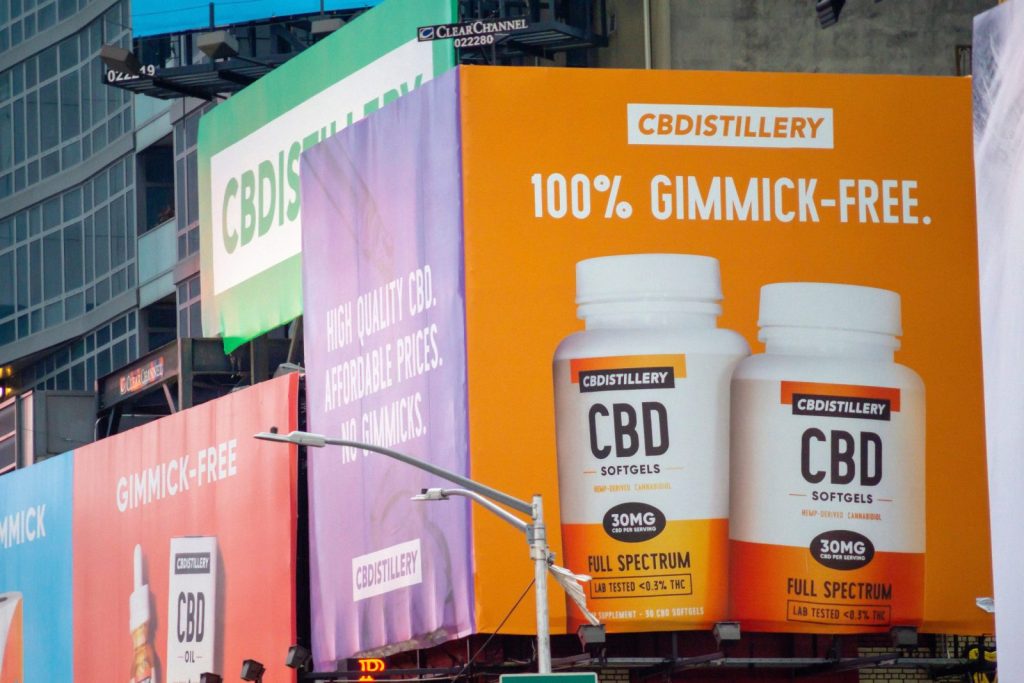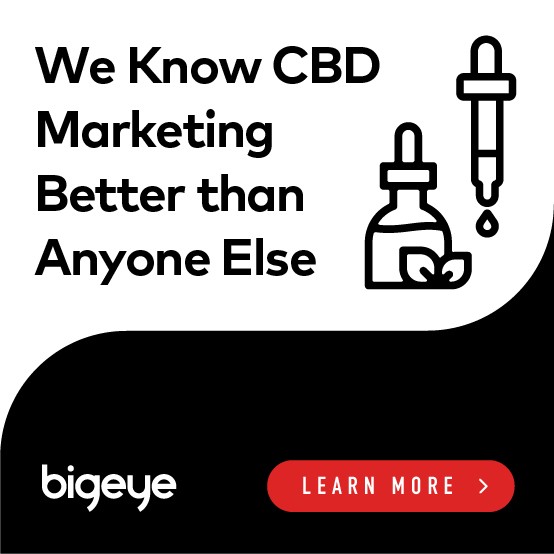
Navigating CBD advertising restrictions or shifting consumer perception can be tricky. Don’t make it harder and market your product using health claims.
Perhaps you’ve heard the tale of how lobsters were once considered worthless and fit only to be served to prisoners? CBD products have a similar origin story. Until recently, growers went out of their way to breed CBD out of plants.
Oh, how times have changed. Now, CBD products represent one of the fastest-growing markets in the health and wellness industry. Consumer sales of CBD products grew an astonishing 500% between 2014 and 2018. Because it is safe, non-intoxicating, and has wide health and wellness applications, CBD is poised to be the most significant new consumer health product category in decades.
The best part for brands in this market? Growth is only getting started. Consumer perceptions of CBD are shifting quickly, and the regulations guiding CBD products are changing. Both developments have the potential to unleash a wave of growth – and brands need to prepare now in order to capitalize.
The accelerated evolution of an innovative consumer health product
The velocity of change in the CBD marketplace has been remarkable. Just five years ago, CBD products were essentially unknown. A Google Trends chart outlining historical search interest in the phrase “CBD” appears as a virtual flat line from 2004 to 2016, before spiking dramatically in 2017.
That interest is coinciding with research that indicates CBD products may have far broader health and wellness applications than previously imagined. Scientists have established that CBD products are especially effective in the treatment of severe childhood epilepsy. Lennox-Gastaut and Dravet syndromes both induce major seizures in children and typically do not respond to conventional epilepsy medications. CBD-derived medicines, however, have been proven to inhibit or even stop such seizures from occurring.
While that application is powerful, it is also quite narrow. CBD’s broader application (at least at the moment) is to be used in the treatment of depression or anxiety. Although CBD is not intoxicating, it shares some of the mood-stablizing qualities of other cannabinoids.
Studies also suggest that CBD has significant potential as an insomnia remedy. While the healthcare sector has developed a number of powerful insomnia treatments, most of them are habit forming and must be used under a physician’s supervision. CBD holds the potential to be a safe, effective, non-habit forming alternative — a melatonin of sorts, but with much greater efficacy.
CBD has also been shown to reduce pain in clinical settings. A recent study in the European Journal of Pain demonstrated that when topically applied, CBD can reduce pain and inflammation associated with arthritis. CBD is believed to inhibit inflammatory and neuropathic pain, two of the most difficult forms of chronic pain to treat.
Ultimately, these health and wellness applications illustrate the most exciting thing about CBD – it’s a widely available consumer product that’s safe, easy to purchase, and can theoretically help almost anyone improve their health or quality of life.
There’s just one catch: CBD brands can’t really broadcast this yet.
The challenge of marketing a great health product…without making health claims
Though the 2018 Farm Bill took CBD products out of a legal gray area and conferred federal legitimacy, the reality of buying, selling, and marketing CBD products remains fairly complex.
In the context of health, the most important thing to understand is this: The Food and Drug Administration (FDA) does not allow brands to market CBD products as therapeutic treatments for disease or other conditions. The FDA also does not allow CBD products to be marketed as dietary health supplements. This doesn’t mean the FDA believes CBD has no therapeutic utility; the agency gave its blessing to a CBD-based epilepsy treatment, Epidiolex, which is marketed as such.
The FDA’s position means that CBD brands must approach any health-related claims with caution. A CBD marketing plan must be carefully crafted, and include precisely calibrated language, in order to stay compliant with FDA rulings.
Working with a top CBD advertising agency or CBD marketing company is often the best way to ensure that a campaign is compelling, yet still designed to stay on the right side of CBD advertising laws or CBD advertising restrictions.
A CBD marketing agency can also serve another key purpose: Helping brands navigate the minefield of CBD online advertising. Large platforms such as Facebook and Google do not allow CBD ads, which means that alternative CBD marketing ideas are necessary
Fortunately, more guidance from FDA regulators is coming; a meeting on the topic was scheduled May 2019. Once the FDA provides greater clarity with regard to CBD marketing, CBD advertising restrictions may ease on some of the larger online ad platforms.
Preparing for product liftoff
Few product categories hold the potential of CBD. Though its applications within the health and wellness industry are immense, CBD also holds promise as a beauty treatment, and additional applications or use cases are still likely to develop.
The complexity of the legal and regulatory landscape surrounding CBD products has acted as a brake on growth, and has also likely dissuaded some from entering the business. This isn’t a negative, however. Brands that transcend these challenges by creating the most compelling, legally compliant marketing and advertising campaigns – and distributing them through the best available channels – will be ideally positioned to thrive when the floodgates truly open.
About us
At BIGEYE, we’re experts at helping brands negotiate the inherent challenges associated with CBD advertising restrictions and marketing regulations. Contact us today to learn what we can do for your CBD brand.



